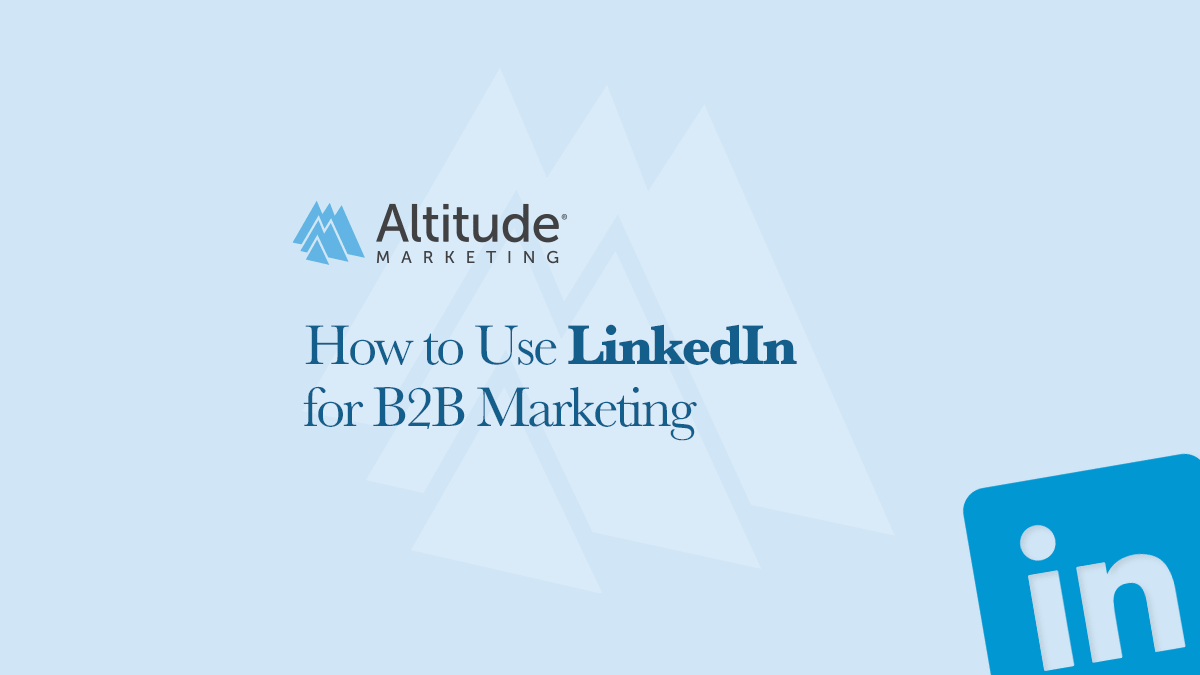
Impressive, right?
If you’re looking for a new job, definitely. But if you want to generate quality leads, LinkedIn isn’t a slam dunk.
That said, you can use LinkedIn to drive demand for B2B products and services. Here’s how to use LinkedIn for B2B marketing, including three tips from our social media experts.
LinkedIn is not a standalone lead generation machine, at least when you’re using it as an organic social media platform. It was originally an “online resume service.” Since then, it’s become more interactive. Companies use it to recruit talent, grow networks, keep customers informed and promote content.
But here’s the key: LinkedIn is about personal relationships.
The best way to build a LinkedIn presence that supports your lead and sales goals is to focus on your leaders’ personal pages.
You want (and need) a solid company page. (That mostly means posting company news.) But using LinkedIn for B2B marketing is really about better personal pages for your “thought leaders.”
B2B businesses can identify their LinkedIn thought leaders by looking at a few factors:
Got some superusers in mind? Awesome. Here are LinkedIn B2B marketing tips to put their social media superpowers to use.
Their profiles should be complete. That means including a professional name (no fake names), an image, and a clear and concise description of the user. The thought leader’s profile needs to be public and viewable to all users of the platform.
Make sure the profile is up to date with work history and that companies are properly linked. In addition:
The foundation of LinkedIn for B2B marketing is connecting with potential or current customers.
When finishing communication with prospects, tell them you’ll be reaching out through LinkedIn. When they see your connection request, they’ll be more likely to accept – which may help move them down the sales funnel.
Be sure to visit prospects’ profile pages before engaging. This gets them curious about who you are and what you do by visiting their pages. They will know you viewed their profile and could end up viewing your page.
Additionally, make sure you join groups. These are a great way to raise a personal profile and expertise, as well as mine for leads.
To grow your network post consistently. Ideally, you’ll want to post a few times a week.
Make an effort to split content into 50% about your brand and 25% about the sector you operate in. Make the final 25% about the themes and issues that personally inspire or engage you, so people see you as an individual.
Tag other people or companies as appropriate.
You can also repost others’ content, such as:
Potential original content topics include:
You usually want to avoid politics or other controversial topics.
Organic LinkedIn engagement can be a valuable tool for B2B marketing. Just be sure to use it how it’s intended: As a personal platform. Build your thought leaders’ personal brands and watch it support your marketing goals.
B2B marketers face a huge challenge: ensuring their messaging actually reaches the right audience. Companies…
No matter your industry, a vibrant and еngaging B2B blog is еssеntial for capturing the…
Email marketing plays a crucial role in the life sciences industry, serving as a powerful…
At the heart of any successful life sciences company’s strategy lies a keen understanding of…
Chances are high that most of your target decision makers are on social media. The…
You’d be surprised at the number of global B2B organizations–with many, many zeroes in their…